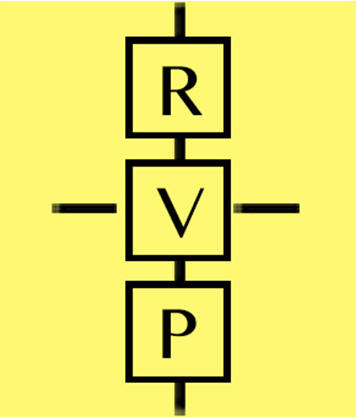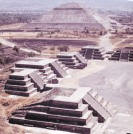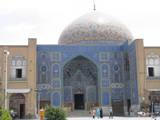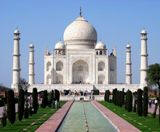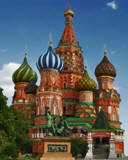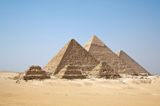Thematic Summary
Seminar Structure
Challenge
Today
achievements in secular terms raise issues of meaning
and fulfillment which point to the sacred horizons of
human life. Yet if conceived in terms of opposition,
sacred commitments can distract from, or even impede,
the realization of essential secular concerns.
This makes it
inadequate to compromise either the sacred or the
secular in order to make room for the other, or simply
to recognize the validity of each sphere in an
alternating progression of both. It now becomes ever
more urgent to discover the proper and complementary
relation between the two so that both can be promoted
through mutual collaboration.
Within nations
this becomes a condition for assuaging mutual suspicion
and achieving social and political solidarity. It holds
the possibility of mobilizing the full range of the
sensibilities and capabilities of all citizens to
confront human challenges. Can the secular and the
sacred work thus together?
Moreover, if each
great civilization is founded on a great religion then
the possibilities of living together in peace depends on
understanding how secular concerns are pervaded by the
sacred and how this in turn can render more porous the
boundaries set by the secular principles of
self-interest. Can the horizons of unity and comity at
the heart of the spiritual and religious dimension of
humanity achieve peaceful interchange and cooperation
between peoples in their daily lives?
In search of
positive answers to these questions it will be necessary
to explore: (a) how the secular does not entail a closed
secularism, but is a legitimate -- indeed essential --
attention to proper human concerns, and (b) how the
sacred with its absolute attention to Truth and Goodness
opens rather than closes, minds and hearts to the
concerns of all peoples and lays the grounds for the
principles for diverse peoples living together locally
as well as globally.
The challenge of
this seminar is then to discover and forge a positive
interrelation of the sacred and the secular in response
to the challenges of our global times.
Response
Forth is a
seminar is projected with the following characteristics.
-Size:
restricted to under 20 scholars, in order to facilitate
intensive interchange around a single table;
-Interdisciplinary:
in order to draw upon the contemporary capabilities of
the various humanities and sciences and to penetrate
deeply into the philosophical roots and religious
meaning of cultures;
-Intercultural: to
benefit from the experiences and commitments of the
various cultural communities from all parts of the
world, to discover their particular problems in our day,
and especially to envisage new and creative responses;
-Focused:a
single integrating theme, in order to encourage a
convergence of insights;
-Duration:5
weeks, in order to allow the issues to mature, the
participants to establish a growing degree of mutual
comprehension, and new insight to emerge;
-Intensive:
analyzing in detail a set of related readings and the
papers planned in common and written by each of the
participants during the seminar; and
-Publication:
the resulting volume, consisting of substantive studies
written by the individual seminar participants
intensively discussed in the seminar and then redrafted,
will reflect concretely the work of the seminar and
share it with those working in the various cultural
communities in facing their problems of contemporary
life.
Organization
-Sponsor:
The Council for Research in Values and Philosophy (RVP),
and The Center for the Study of Culture and Values,
Catholic University of America (CUA).
-Participants
in each seminar: 10 philosophers from the various
continents, who are expected to take part in all
sessions of the entire seminar and to write a chapter
for the publication. They will be joined by professors
from various disciplines from the universities and
institutes of the Washington area. The visiting scholars
will be welcome to join in seminars and courses at CUA,
where they will be designated Visiting Research
Professors. They will have the use of the research
facilities of the Library of Congress and of the
universities and institutes of the Washington area.
Thus, the period of the seminar should constitute
effectively a hard working mini-sabbatical.
-Schedule:
The seminar will meet on Mondays, Wednesdays and Fridays
9.00 a.m. - 12.00 noon for discussion by the visiting
scholars of key contemporary texts related to the
evolution of the theme of the seminar and for the
presentation by the participants of the drafts of their
chapters as a basis for intensive critical and
exploratory discussion by the group.
-Costs:
Successful applicants will be granted an RVP Research
Fellowship which covers all fees for the seminar itself,
including simple room and board, but not travel.
-How to apply:
By a letter of application before March 20,
2008,together with a curriculum vitae and bibliography,
providing details of the importance on the seminar to
the applicant's overall work and the achievement of his
or her specific goals.
-Address:
George F. McLean, The Council for Research in Values and
Philosophy, Room B-18, Gibbons Hall, CUA, 640Michigan
Aves., NE (at the Brookland-CUA Metro Station),
Washington, D.C.; postal address: Cardinal Station, P.O.
Box 261, Washington, D.C. 20064; tel./fax or voice
message:202/319-6089;
e-mail: McLean@cua.edu.; Website: http://www.crvp.org

